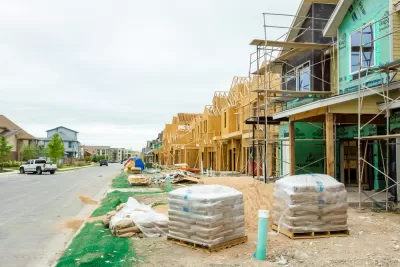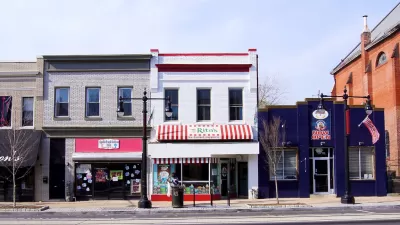The lessons of the 2008 housing market crash don't necessarily apply to the current situation.

Jeff Andrews writes on the housing market context into which the pandemic has emerged:
Historically low inventory and rock-bottom mortgage rates would normally set the stage for a highly competitive homebuying season. While recessions normally have only a minor effect on the housing market, the coronavirus is making life and markets anything but normal.
Citing a literature review by Zillow published earlier in March, the history of past pandemics suggest that the pandemic will have the effect of freezing the housing market. To put it bluntly: prices don’t drop when no one is buying houses.
Andrews also notes that the moratorium on foreclosures, announced by President Trump last week for mortgages backed by Freddie Mac, Fannie Mae, and the Federal Housing Administration (FHA), will help in preventing the bottom from falling out on the real estate market like it did in 2008.
Among the other concerns mentioned by Andrews in the article are the supply chains for the housing construction industry, which could be interrupted by the coronavirus and thus delay a recovery in the sector. A decline in housing production would, according to Andrews, exacerbate the housing shortages that existed before the coronavirus struck.
Perhaps the one clear takeaway from this article is how different the current situation is from the housing crash of the Great Recession. Andres explains:
It’s hard to forget the recent history, but while the 2008 financial crisis saw both the housing and stock markets drop in tandem, this was an aberration in so many ways; the housing market crash was ultimately the cause of the stock market crash. Typically the housing market isn’t tied to swings in the stock market, because people don’t buy houses purely as an investment. Housing is a basic need, and the decision to buy one is usually prompted by entering a new stage of life.
FULL STORY: How coronavirus is impacting the housing market

Maui's Vacation Rental Debate Turns Ugly
Verbal attacks, misinformation campaigns and fistfights plague a high-stakes debate to convert thousands of vacation rentals into long-term housing.

Planetizen Federal Action Tracker
A weekly monitor of how Trump’s orders and actions are impacting planners and planning in America.

San Francisco Suspends Traffic Calming Amidst Record Deaths
Citing “a challenging fiscal landscape,” the city will cease the program on the heels of 42 traffic deaths, including 24 pedestrians.

Houston Mayor Kills Another Bike Lane
The mayor rejected a proposed bike lane in the Montrose district in keeping with his pledge to maintain car lanes.

Aging NYC Subway Cars No Match for Extreme Heat
The MTA receives thousands of complaints about broken air conditioning on subway cars each summer.

Cleveland to Boost Bike Safety With New Bike Lanes, School Programs
The program, using curriculum created by Cleveland Bikes, is part of a broader effort to improve safety along school routes.
Urban Design for Planners 1: Software Tools
This six-course series explores essential urban design concepts using open source software and equips planners with the tools they need to participate fully in the urban design process.
Planning for Universal Design
Learn the tools for implementing Universal Design in planning regulations.
Gallatin County Department of Planning & Community Development
Heyer Gruel & Associates PA
JM Goldson LLC
City of Camden Redevelopment Agency
City of Astoria
Transportation Research & Education Center (TREC) at Portland State University
Jefferson Parish Government
Camden Redevelopment Agency
City of Claremont





























